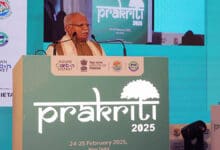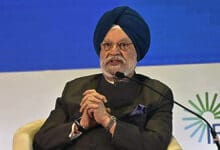The recently concluded inaugural International Conference of Petroleum and Natural Gas Regulators, hosted by the Petroleum and Natural Gas Regulatory Board (PNGRB) under the umbrella of the India Energy Week (IEW) 2024, has concluded with notable discussions and agreements. The event, held in Goa from the 5th to 8th of February, brought together major energy regulatory authorities from South and Southeast Asia, including Bangladesh, Indonesia, Malaysia, Sri Lanka, and Thailand, along with esteemed international industry leaders.
With the overarching theme, “Navigating Pathways for Natural Gas Development”, the conference’s focus was on natural gas’s pivotal role in accelerating emission reductions necessary to meet climate targets, especially in emerging and developing countries. The plenary sessions covered a broad array of topics such as geopolitical uncertainties impacting energy security, the pace of infrastructure development, public-private partnerships, and institutional growth. Notably, an exclusive roundtable of international regulators facilitated the sharing of best practices and collaborative strategies to bolster energy security and governance.
Hardeep Singh Puri, the Minister of Petroleum and Natural Gas and Housing and Urban Affairs, in his address, reiterated Prime Minister Narendra Modi’s vision to increase the share of natural gas from 6% to 15% in India’s energy mix. He commended the PNGRB for hosting this landmark event and suggested that such international regulatory conclaves become an integral part of future editions of IEW.
The conference also emphasised regional collaboration among South and Southeast Asian countries for knowledge sharing to foster effective regulatory frameworks for natural gas development. Dr Anil Kumar Jain, Chairperson of PNGRB, stressed this point and highlighted India’s significant efforts in natural gas regulatory and infrastructure development, particularly in the city gas distribution sector.
The discussions at the conference underlined the role of natural gas as a transition fuel towards achieving net-zero emissions and advocated for a united stance from the Global South to secure energy supply amidst geopolitical uncertainties. The need for a regional clean energy agenda, especially via interconnected gas and electricity grids between South and Southeast Asian nations, was also emphasised.













